On Randomness and Chance (I.D. III)
 |
| Richard Dawkins's The Blind Watchmaker |
Dawkins, who proudly owns to being an atheist, wants to show that the standard Darwinian explanations are powerful enough to explain our existence and that of all we see around us in the Earth's evolved biosphere.
The main "actor" in evolution is, for Dawkins, cumulative selection. This is Darwin's own idea of natural selection, with an emphasis placed on the fact that there have been uncountable numbers of generations since the first life forms appeared on Earth for its results to compound like interest on a bank deposit. Just as compounding allows a pittance to multiply into a fortune over a large enough number of payment periods, cumulative selection can, over a sufficient number of generations, produce results that stagger our common sense.
For example, cumulative selection can turn what began as a slightly light-sensitive patch of skin, the result of an accidental change to hereditary factors, and turn it — over vast amounts of time, which is to say, down through huge numbers of generations — into an eye.
So, for cumulative selection to work, there has to be intergenerational variation in hereditary factors passed from parents to offspring: random mutations that are presumed to happen purely by chance.
What does it mean, this idea that something happens — or not — by pure chance? We think immediately of a coin flip. If the hypothetical coin comes up heads, there is a mutation. If it comes up tails, no mutation.
But that's not quite right, since the probability of a mutation happening is not 50% (0.50). It's actually a very tiny number, but let's say there is one chance in six of a mutation occurring to a particular gene. Then we could decide by throwing an ordinary six-sided die. If and only if it comes up 1 will there be a mutation.
If the actual probability of a mutation were 0.05, or 5%, we could throw a 20-sided die, beloved of role-playing gamers.
If the probability were 0.000001, or one in a million, we could throw an imaginary million-sided die.
Now, a mutation is actually a copying error which changes one particular letter of the genetic "text" at random. The genetic alphabet has just four letters, A, C, G, and T, which stand for molecular components of DNA called nucleotides. If an A is miscopied as a G, for example, there is a mutation. If it is miscopied as a C, there is a different mutation. And if it is miscopied as a T, there is a yet different mutation.
So we will need to use a hypothetical die whose huge number of sides reflects the tiny probability of any one of these mutational possibilities occurring, and we will need to toss it three times, once for C, once for G, and once for T.
Still and all, there is hypothetically some single, very-many-sided die whose roll or sequence of rolls can be used to model both the low probability and the sheer randomness of mutational events.
There is something counterintuitive, I think, about such randomness, no matter that we can model it in our heads with die rolls or coin flips. For one thing, it's not clear to me whether a random event is or is not supposed to have a cause. Does a mutation have a cause, as opposed to a mere explanation as a copying error? What, if anything, causes the copying error?
Given that it's not clear that a random event has a cause, what if we assume that it doesn't? Wouldn't that be equivalent to saying it has zero causality? And it that's correct, doesn't any cumulative chain of random mutational events likewise have zero causality — sort of like multiplying any number by zero, with the result always being zero?
By that logic, even if natural selection can itself be considered a causative influence on evolution, and even if its causality compounds over a multitude of generations in the way Dawkins suggests, doesn't the need to keep multiplying by zero keep churning out a zero-causality result?
That line of thinking makes it seem like evolution grounded in random mutation produces results that have no cause. Definitely counterintuitive.
If we don't like that line of thought, then maybe we can assume that random events are caused, all right, but we just don't (can't?) know what the causes are. All we can know is that each possible outcome of our hypothetical die roll is equiprobable with every other possibility. A 1 comes up exactly as often as a 2 or 3 or 4, etc., given a sufficiently large number of rolls of the die.
Thus do we know that, due to the assumed pure randomness of mutational events, any one arbitrary mutation to any one candidate gene is equiprobable with any other arbitrary mutation to any other candidate gene, when the cell division takes place that creates a sperm or egg. We know that the likelihood of mutation A is as small as that of mutation B.
And that's not a satisfyingly large amount of knowledge ... particularly when we turn to the question of how, exactly, can we assure ourselves that some natural process like genetic mutation is in fact random or (as I am calling it in my mental model) die-roll-dependent. This attribution of randomness: Is it just an assumption we're making because we have no other (non-supernatural) explanation to offer?
I can't really answer such questions yet. But what I can do is note that different theorists of biological evolution reason in different ways from the presumed sheer randomness of genetic mutations, or of other low-probability events that are supposedly necessary in the history of life on Earth.
For example, William A. Dembski in Intelligent Design (which I am devouring slowly, being at this juncture still in chapter 1) seems to be leading up to the following argument. We can tell that the diverse biosphere we see around us, and which includes us, is a sign from God by means of which we ought to decide in favor of belief in God.
How can we tell? First, because life on Earth is so truly extraordinary in its rich complexity, it can't be just an accident, one that happened solely by chance. It must have had a designer.
And, second, because the overall pattern of life on our planet has the property which Dembski calls unique specificity, its designer must accordingly be God. More to the point, God must have preempted the ordinary randomness of events like genetic mutations.
Dembski gives an analogy from the Bible's book of Exodus (pp. 35-37). The Lord God gives Moses a set of ten signs to prove to Pharaoh that he ought to free the Israelites. First, Moses will, with God's power, turn the river to blood; next, if Pharaoh does not relent, there will be a plague of lice; then a plague of frogs. And so on, until the tenth sign, the death of all firstborn Egyptian children, after which Pharaoh finally relented.
Now, Pharaoh's magicians themselves could perform the first three signs, but their inability to match the fourth, a plague of flies, convinced them that Moses's signs represented indeed "the finger of God." Unfortunately, Pharaoh himself wasn't convinced of that until the death of the firstborn, but Dembski says this is just a case of different people having different ideas about how many "coincidences" it will take to convince them that a sequence of odd events is extraordinary enough to bear "unique specificity" to God.
Another example is given in one of Dembski's endnotes. Endnote 6 on page 280 endorses a fifteenth century rabbi's interpretation of the repeated casting of lots by means of which Jonah was made a scapegoat in his eponymous biblical book. Casting lots is to ancient times what rolling dice is to ours. Since "every time the lot fell on Jonah," the whole sequence of lot-castings was adjudged to point to Jonah as the source of the maritime disasters which had befallen him and his companions.
Crucially, although any one lot-casting is deemed to be a matter of chance, a long, solid sequence of "Jonah is the bad guy" casts bespeaks "the finger of God." It is not only extraordinary in its improbablity, it is so extraordinary as to admit of but one explanation: God's authorship. The sequence of lot casts which "fingered" Jonah were, in Dembski's terms, uniquely specified to God.
Examples like this make me think that, for Dembski, the difference between mere extraordinariness and the kind of specificity that is unique to God alone is one of degree rather than of kind. A number of "coincidences" have to pile up, one after another. If that number is met, it will lead one to say that the result is not merely highly improbable; it's not random at all. It didn't happen by pure chance. It was authored by God.
By extension, then, each single cast of lots or throw of dice in the sequence was palpably not random, either. God took a hand each time, instead.
Or maybe not, in the case of evolution, each time. Maybe some, or even many or most, of the mutations were random.
But some must not have been. Why? I am sure Dembski, the theist, is at some point going to claim that there haven't been enough generations — there has been insufficient time — since life began on Earth for strictly random sequences of mutations, culled by natural selection, to yield the complexity we see.
Dawkins, the atheist, claims the exact opposite. Cumulative "blind" selection is so powerful, he says, as to have scuplted all we see out of a litany of pure-chance variations to heritable factors. No need to infer "the finger of God" in evolution.
What interests me is that both authors are constructing arguments about chance, or the overriding thereof by God. I find arguments about chance dicey at best — pun definitely intended. For example, in his chapter 6, "Origins and miracles," Dawkins suggests that cumulative selection, powerful as it is, must have needed a starting point, an original life form that arose by pure chance, defying some rather long odds against.
This presumably single event could not, Dawkins says, have itself resulted in an organism whose complexity has been greatly refined by the power of cumulative selection. And yet this first organism must have come equipped quite a bit of complexity, to be able to self-replicate and get evolutionary history started in the first place.
Dawkins spends a lot of words pondering just how improbable this "miraculous" first evolutionary event — not an event, he says, that was supernaturally caused — was. How much luck, in other words, are we allowed to postulate before caving in and saying there must be a God?
Again, this is reasoning in the absence of hard evidence — or any evidence, really — about life's origins.
Meanwhile, in At Home in the Universe, Stuart Kauffman broaches a theory of the lawful, self-organized appearance on Earth of, first, life itself and then of its emergent properties, among them possibly our own conscious self-awareness. He says these "robust" properties of living matter can be confidently predicted to arise.
Pure chance takes a back seat in Kauffman's worldview, but it is not replaced directly by the "finger of God." Rather, Kauffman supposes there are laws of nature which cause minimally elaborate networks of interacting components to produce surprising things. For instance, mathematical models and computer simulations show that if a minimal number of proteins happen to come together in one place, they will begin to catalyze one another's production. As the number of cohabiting proteins rises past a certain threshold, they will form an "autocatalytic set": basically, a self-replicating life-unit.
That may indeed be how the ballgame of life and evolution got started on Earth, says Kauffman, and in a matter of not too many years, he hopes reseachers will have sufficient experimental finesse to duplicate autocatalytic protein sets in a laboratory.
Furthermore, the number of cohabiting, mutually catalyzing proteins it would take to "go autocatalytic" may be as small as, say, 50. Kauffman shows that the probability that such a set of proteins could arise on the early Earth, without supernatural help, is not dauntingly low.
In other words, Kauffman's theories render moot all Dawkins's fretting about how low the probability of life's kickoff event could tolerably be, sans divine intervention, while at the same time they undercut the Dembski view that we need divine intervention and can thus deep-six random-chance events entirely at crucial junctures.
I like that about Kauffman's view. It makes arguments from randomness a much more minor component of evolution theory!






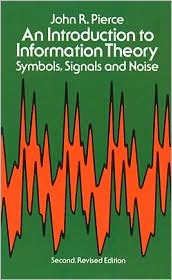

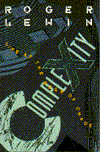
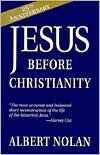
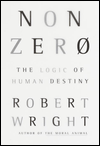

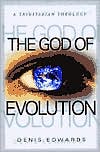

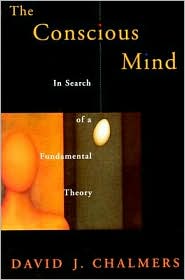
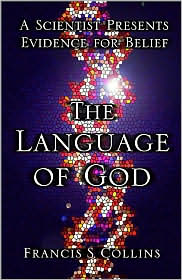


0 Comments:
Post a Comment
<< Home